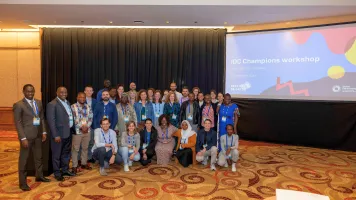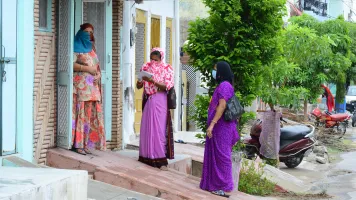Established in Berlin in September 2015, the International Organization for Migration’s Global Migration Data Analysis Centre (GMDAC) was set up to respond to calls for better international migration data and analysis. Data are key to inform migration governance, improve programming and promote a better public understanding of migration.
GMDAC's aims:
- Strengthen the role of data in global migration governance (e.g. Global Compact for Migration, Sustainable Development Goals)
- Support IOM Member States’ capacities to collect, analyze and use migration data.
- Promote evidence-based policies by compiling, sharing and analyzing IOM and other sources of data.
Priorities as an Inclusive Data Charter Champion
GMDAC has recently strengthened and expanded its work related to the Sustainable Development Goals (SDG) and data disaggregation. GMDAC is involved in data collection for SDG indicator 10.7.3 on migrant deaths and disappearances as well as for 10.7.2 on migration governance, and is actively engaged in many global fora on SDG data and data disaggregation, including with the UN system.
In April 2021, GMDAC published a capacity building tool titled “Leave No Migrant Behind: The 2030 Agenda and Data Disaggregation”. This provides practical guidance on how to disaggregate SDG indicators by migratory status, aiming to improve countries’ capacity to do this. This guide will be used to help countries identify and include migrants in national data systems, to inform migrant-inclusive development and policy planning. GMDAC has developed related communications materials, including a series of videos entitled "Where are the migrants in the SDGs?" based on disaggregated data, designed to raise awareness of the importance of data disaggregation.
By signing up to the Inclusive Data Charter and working alongside other champions, GMDAC intends to build on this work to deepen its engagement on data disaggregation issues with countries around the world. This may include holding information or capacity building sessions on the collection and use of disaggregated data, and well as helping countries share good practices on how this can be achieved in practice.


